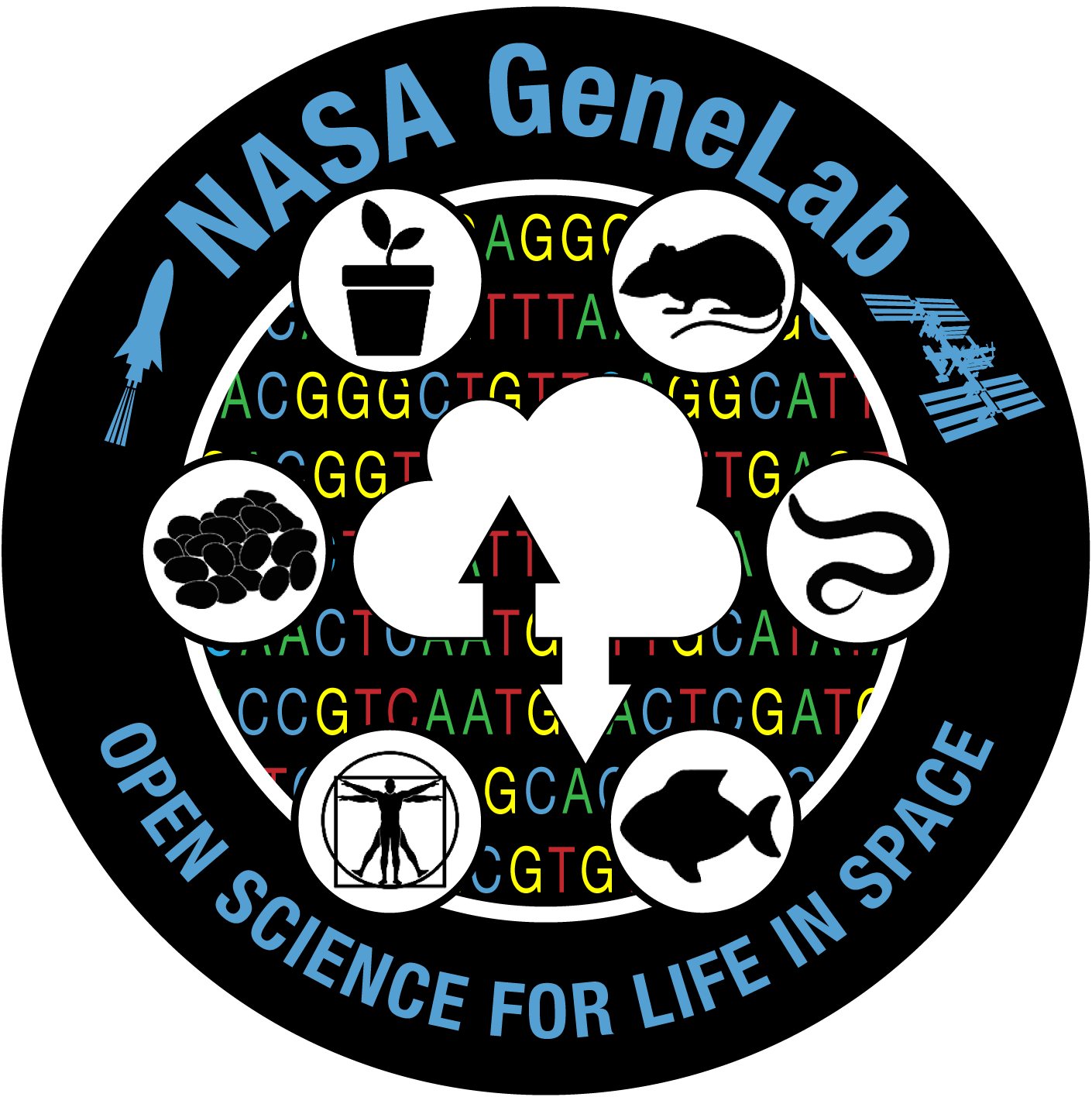GeneLab is recruiting members for Analysis Working Groups to analyze NASA omics data!
NASA’s GeneLab Project is recruiting investigators, bioinformaticians, graduate students, and postdocs to participate in Analysis Working Groups (AWGs) that will investigate specific subsets of omics data from experiments conducted onboard the International Space Station, the Space Shuttle, as well as ground-based research with relevance to spaceflight (e.g. radiation or unloading/weightlessness).
GeneLab is a science collaboration initiative and data system effort that provides a workspace with tools to analyze and visualize omics data. GeneLab has established the AWGs with the goal of maximizing the generation of new knowledge from these rare and complex spaceflight datasets.
The project has established four AWGs – scientific groups of excellence focused on analyzing spaceflight-relevant omics data within the GeneLab Data System (GLDS). Below is a list of the groups and their leads:
- Animals (Mammals and Non-mammals) – Dr. Nathaniel Szewczyk (University of Nottingham), Dr. Tejaswini Mishra (Stanford University)
- Plants – Dr. Richard Barker (University of Wisconsin-Madison), Colin Kruse (Ohio University)
- Microbes (eukaryotic, prokaryotic) – Dr. Daniela Bezdan (Weill Cornell Medicine), Dr. Stefan Green (University of Illinois at Chicago), Dr. Michael Strong (National Jewish Health)
- Multi-omics strategies – Dr. Afshin Beheshti (NASA Ames)
The primary activity of each AWG is to establish analytical processes to generate higher-order data from data in the GLDS, with relevance to one or more specific application areas. For example, the Animal AWG will analyze all data relevant to mammalian systems (human, mouse, rat, etc.). The multi-omics group will focus on gaining new knowledge using systems biology approaches: e.g. how do transcriptomics and proteomics compare within the same dataset? What are the common molecular signals induced by spaceflight across the various species?
The AWG participants will help assess and improve the effectiveness of GeneLab through intensive utilization of data analysis tools. These investigations are anticipated to lead to one or more scientific publications, as well as implementation of specific data visualization strategies to disseminate new knowledge from these analyses.
An AWG kick-off meeting was held January 25, 2018 at the Human Research Program Investigators’ Annual Workshop in Galveston, TX, and virtually. Members from all AWGs met in this first session. Following, each AWG has met separately in monthly teleconferences to become familiar with datasets and tools in the GLDS, and to provide initial feedback on how to gain new knowledge from the data. In April 2018, all AWGs met in-person for a two-day workshop to finalize the establishment of processing pipelines. Data processing using the AWG pipelines started in the summer of 2018 when GeneLab hosted 10 student interns at NASA Ames Research Center.
Are you interested in participating in an AWG? Do you have students with strong bioinformatics skills who might be interested? If so, please review the GeneLab Analysis Working Groups Charter and fill out the request to join the AWG form. Scientists having the required specialized capabilities/qualifications to support the work described in AWG charter are asked to submit a capability/qualification statement. There is no required font size and/or type designated for this Capability/Qualification Statement. Submit your response electronically in PDF format. The response should include the following: 1) Contact information (name, affiliation, address, phone, e-mail). 2) Subject area expertise (a concise description of your expertise in terms of omics analyses including a list of relevant work and publications performed in the past five years). We look forward to hearing from you!


